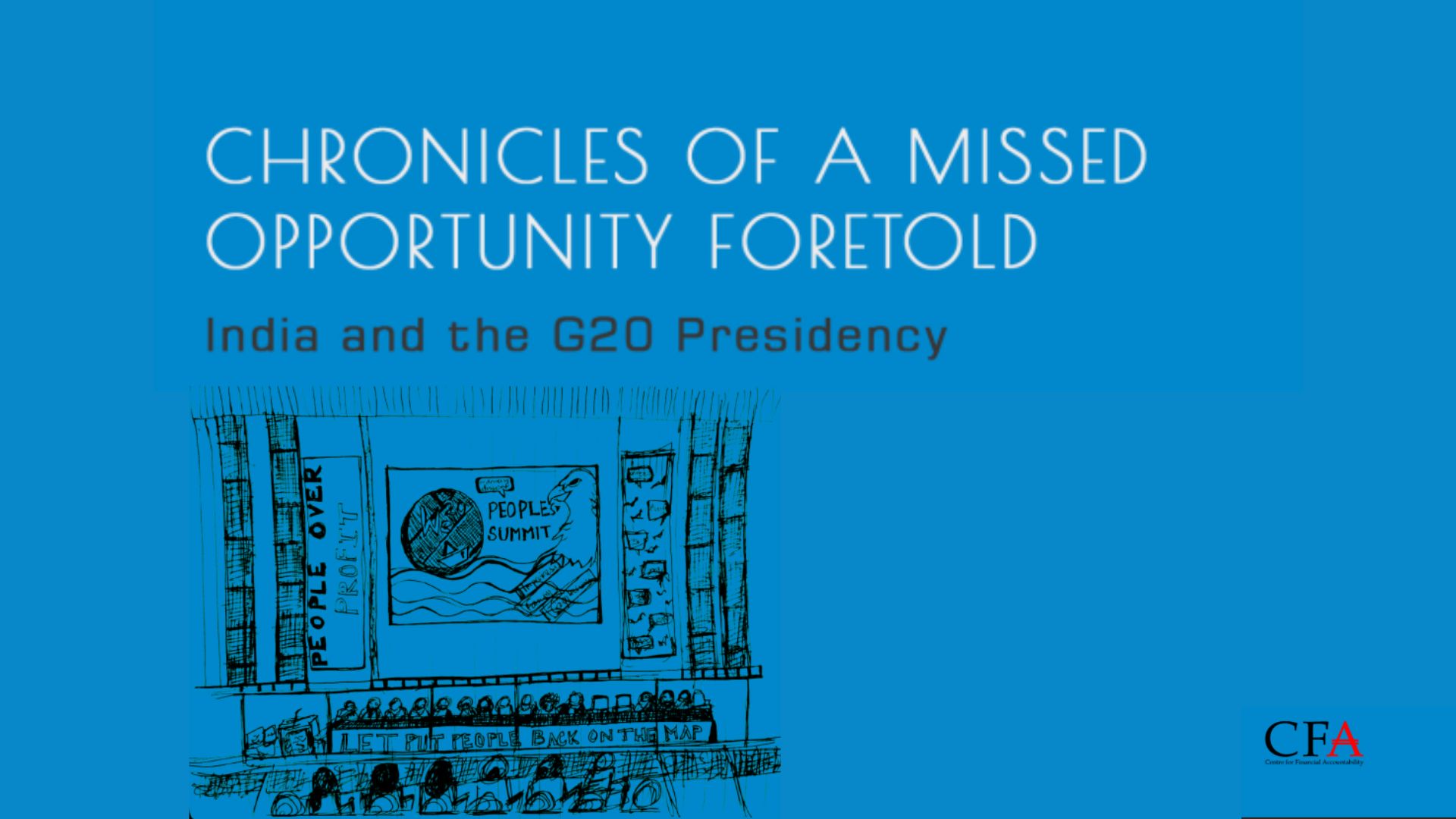 On August 19, on the second day of the We20: A Peoples’ Summit on G20, which aimed to provide an alternative platform for discussions parallel to the G20, was met with disruption by the Delhi Police. The event, organized by over 70 people’s movements, trade unions and civil society groups, sought to highlight the voices and concerns of marginalized communities often excluded from mainstream economic debates, more so, in the Indian Presidency. However, as the summit gathered momentum, it was abruptly halted due to police intervention, sparking debates about freedom of expression and democratic rights.
On August 19, on the second day of the We20: A Peoples’ Summit on G20, which aimed to provide an alternative platform for discussions parallel to the G20, was met with disruption by the Delhi Police. The event, organized by over 70 people’s movements, trade unions and civil society groups, sought to highlight the voices and concerns of marginalized communities often excluded from mainstream economic debates, more so, in the Indian Presidency. However, as the summit gathered momentum, it was abruptly halted due to police intervention, sparking debates about freedom of expression and democratic rights.
The Indian government is projecting the 18th G20 Summit, to be held in early September 2023 in New Delhi, as a political and electoral event. The 200 meetings in around 60 towns and cities witnessed massive forced evictions, with over 250,000 houses demolished in Delhi alone. In none of these meetings, people or their organisations are invited to speak the real issues vis-à-vis climate crisis, agriculture, right to city, marginalisation, labour rights, health and others.
While India’s position on several rankings related to electoral democracy, freedom of speech, press freedom index are falling, and attacks on religious minorities are on the rise, India is projecting herself as a ‘Mother of Democracy’ and ‘Vishwaguru’ (teacher of the world) in its publicity blitz towards the build-up to the Summit, using public money. Rs. 510 million is the cost incurred by the central government alone for these advertisements. What is spent by the state governments is yet to be ascertained.
It is in this context the Peoples’ Summit was held. Over 700 delegates from 18 states took part in it. The We20: Peoples’ Summit was intended to serve as a counterpoint, addressing the shortcomings and concerns that many argue are inadequately tackled by the G20’s policies and decisions. Before police disrupted the Summit, 6 out of the 9 workshops took place. The remaining 3 workshops are being held online. The administration can disrupt a meeting, but they cannot take away peoples’ right to discuss issues pertaining to their lives and the planet.
The workshops covered key issues like inequality, climate crisis, just energy transition, labour rights, social protection, corporatisation of agriculture, attack on natural resources and real alternatives and others.
The illegal police action on the We20: Peoples’ Summit is a reflection of a weak state, scared of dissenting voices. It also reflects the shrinking democratic spaces and a country increasingly moving into an authoritarian regime. It also was to prevent any other narrative on G20 to go out, except for the one promoted and propagated by the government, that of a shining India. The disruption was emblematic of a broader trend where dissenting voices are stifled, thereby limiting the scope for constructive dialogue on crucial issues.
The police highhandedness and the disruption of the WE20 Peoples’ Summit during the Modi administration’s G20 presidency carries several key lessons that shed light on the dynamics between the government, civic engagement, and democratic rights. Here are some key lessons that can be gleaned from this incident:
Freedom of Expression and Dissent: The incident underscores the importance of preserving the freedom of expression and the right to assembly, which are fundamental pillars of a democratic society. While the right to assembly should be asserted even in public spaces, this meeting was in a private auditorium, without causing any disruption to others.
Using Security Concerns as a Cover: What is the security concern with a group of people sitting inside closed doors and discussing issues? How can the state use ‘security’ as an excuse to clamp down on democratic rights of the people? And whose security are we talking about? Shouldn’t the security of people living in those 250,000 houses in Delhi which were demolished for G20 events be of concern? Shouldn’t the security of farmers and fishworkers, hawkers and traders, adivasis and dalits who are impacted by the decisions and recommendations of forums like G20 be counted?
Transparency and accountability, public perception and international image, open dialogue and engagement, vilification of civil society, democratic spaces, dialogue instead of disruption are some of the other key concerns related to this state highhandedness.
Read the full paper here: India and G20 Presidency

